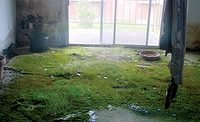Rutgers Researchers Say Mold Can Lead to Parkinson’s-Like Symptoms
The Rutgers study exposed fruit flies to various chemicals emitted by molds

According to a Nov. 11 story on NJ.com, Rutgers researchers have found that fruit flies exposed to mold came down with symptoms that are similar to Parkinson’s Disease, a breakthrough discovery in the potential health issues that may be caused by mold exposure.
From the story:
“The Rutgers study exposed fruit flies to various chemicals emitted by molds. One particular mold – dubbed "mushroom alcohol" by the Japanese scientist who isolated it in the 1930s – had an immediate impact on the fruit flies, said Arati Inamdar, the researcher at Rutgers’ School of Environmental and Biological Sciences.
The fruit flies displayed tremors, a slow gait, with postural imbalance and problems with locomotion – all consistent with the signs of Parkinson’s disease. "You can see all this on these flies that were exposed to this chemical," (fungus expert Joan Bennet) said.
Further study showed the toxic chemical is able to block two important genes that regulate dopamine – the chemical that allows nerve cells to communicate.”
What’s interesting is that researchers attempted to expose the flies to the mold chemicals on the scale of what a human would encounter in a typical moldy building.
Check out the entire report, which was published in the Proceedings of the National Academy of Sciences. See the entire story on NJ.com by clicking here.
Looking for a reprint of this article?
From high-res PDFs to custom plaques, order your copy today!







